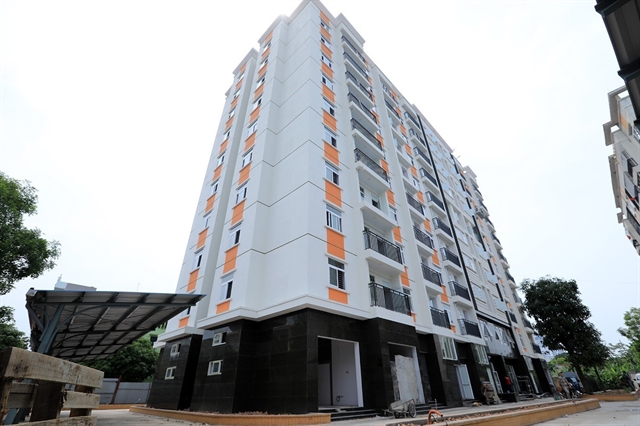 Politics & Law
Politics & Law


|
| A social housing building in Bắc Giang Province. Under the law, Vietnam General Confederation of Labour will be in charge of social housing construction. — VNA/VNS Photo Tuấn Anh |
HÀ NỘI — The revised Law on Housing passed on Monday with the support of the National Assembly's majority (85.6 per cent) and was scheduled to take effect on January 1, 2025.
At the debate stage, some lawmakers pressed for a revision to the articles that allow provincial authorities to demolish an apartment building when it has reached the end of its design life or is in bad condition and unsafe to live in.
They said the articles are at odds with the Law on Land, which stipulates that residential land has no design life.
In response, the verifying agency said the law did distinguish between a building on residential land and that on land earmarked for a project with a design life. Owners are entitled to the freehold of the former whereas they can only own the latter for the design life.
The National Assembly Standing Committee arrived at the decision to keep the articles in the draft unchanged. It said an apartment building on residential land would lose its value when reaching the end of its design life.
However, due to owners' entitlement to the land, they would be granted compensation for the demolition of the building.
"When an apartment building has reached the end of its design life, it must be demolished, and its owners will be compensated for the demolition," said the committee.
Regarding an apartment building on land earmarked for a project with a design life, the law regulates that "when the project investors sell the building to an organisation and individual, it will become a building on residential land."
Under the law, the Vietnam General Confederation of Labour (VGCL) will be designated as a governing body in charge of building social housing for workers and other beneficiaries.
The law also has a provision for the lease rates of social housing, which will be regulated by VGCL. Meanwhile, the authority to define the procedures applying to the sale and the lease of social housing will fall to the Government.
The law incentivises the construction of social housing by allowing social housing investors to build commercial housing on 20 per cent of the land dedicated to the social housing project, provided that they pay for the use of the land portion.
Some lawmakers suggest the task of resolving disputes related to the operation and maintenance costs of an apartment building should be assigned to district-level governments to ease the administrative burden on province-level ones.
The committee disapproves the suggestion on the grounds that the complexities of the disputes normally go beyond district-level authority. However, province-level governments can re-assign the task to their district-level subordinates if they are competent at the job. VNS




